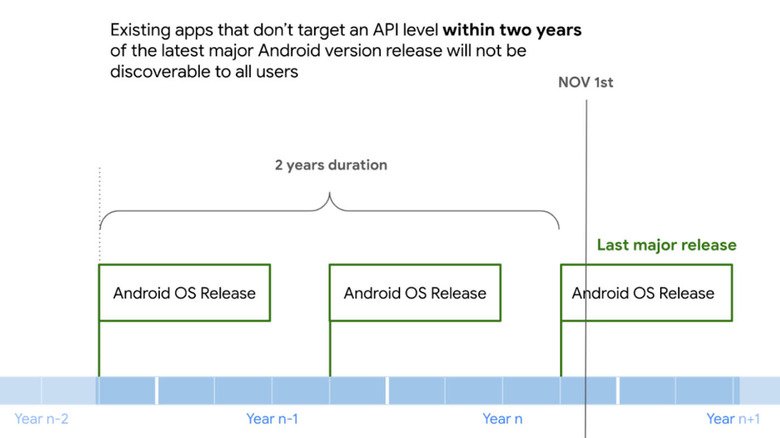Google Play Store Will Hide Outdated Apps In The Name Of Security
Although it has millions of apps in its library, the Google Play Store is not something that even Android users would consider a shining example of a mobile marketplace. A good number of these apps are blatant clones of popular games, while some seem to simply offer crude functionality for the sake of having an app uploaded to the store. There are, of course, also quite a number of potentially harmful apps or PHAs that get through the cracks of Google's AI-powered security system. There are apps that do offer a decent set of features and are totally innocent, but that have been abandoned by their developers for whatever reason.
Google apparently sees these outdated apps as security nightmares waiting to happen, so it will soon be hiding them from view without actually removing their listings. Fortunately, there's no reason to panic immediately, especially if developers take action now before Google completely closes the doors on these apps.
Every new Android release raises what developers call the API level, a number that correlates to the state of the Android platform for that release. New API levels naturally bring additional features and bug fixes, but they might also drop previously existing features from time to time. Google recommends that developers target a minimum API level that advances every release. Any app that falls behind that recommendation is considered outdated.
Starting November 1, 2022, Google will enforce a policy that will prevent an outdated app from being discovered through search and installed by new users who have previously installed the product. The policy specifically defines outdated apps as ones that target an API level within two years of the latest major Android release. When that policy goes into effect later this year, Android 13 will have already been released, so only apps that target Android 10 or 11 and above will meet those requirements. Every year, those numbers move forward, so it means developers will be forced to update their apps every year if they only target the bare minimum requirement.
A firm security stance
This sounds like a heavy-handed policy, but Google is justifying it by appealing to fears regarding security. In theory, an app that has not been updated in a very long time or that targets an older release of Android will still have security holes that may have already been fixed. Google is now trying to force the hands of developers to update their apps or risk being delisted, which would practically be the same as being removed from the Google Play Store. Apps that fail to meet the deadline will most likely be considered abandoned anyway.
It's not a clean-cut scenario, though, because there might be valid reasons why a developer chooses not to move onto a newer Android version. That is often the case when Google removes a feature or changes a policy that the app needs in order to work. That said, the November deadline is still half a year away, and the apps will only turn invisible for those who haven't installed them at least once. Now might be a good time for Android users to seek those old apps out and install them before time runs out.

